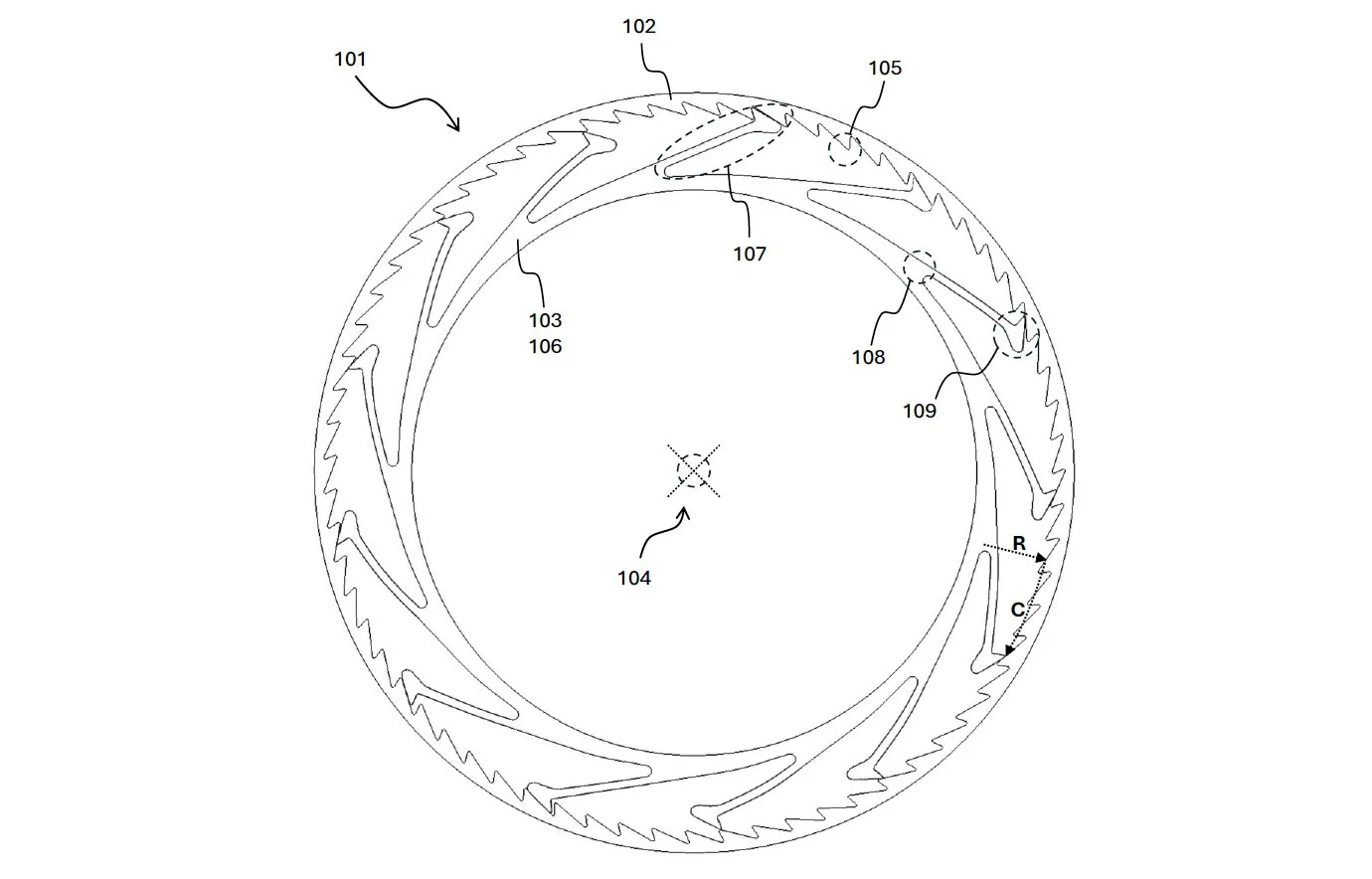OK, so, technically this new Lauf Cycles rear hub design may have “hundreds” of factors of engagement per rotation, however that may as nicely be infinite. Often known as instantaneous.
Both approach, the impact is that the hub will have interaction so shortly that it’s going to really feel rapid, and it does this with a really intelligent staggered, doubtlessly “elastic” pawl design that additionally softens engagement and might be positioned all through the hub’s total shell.
Oh, and it does all of this with out magnets or springs.
How Lauf’s hub design works
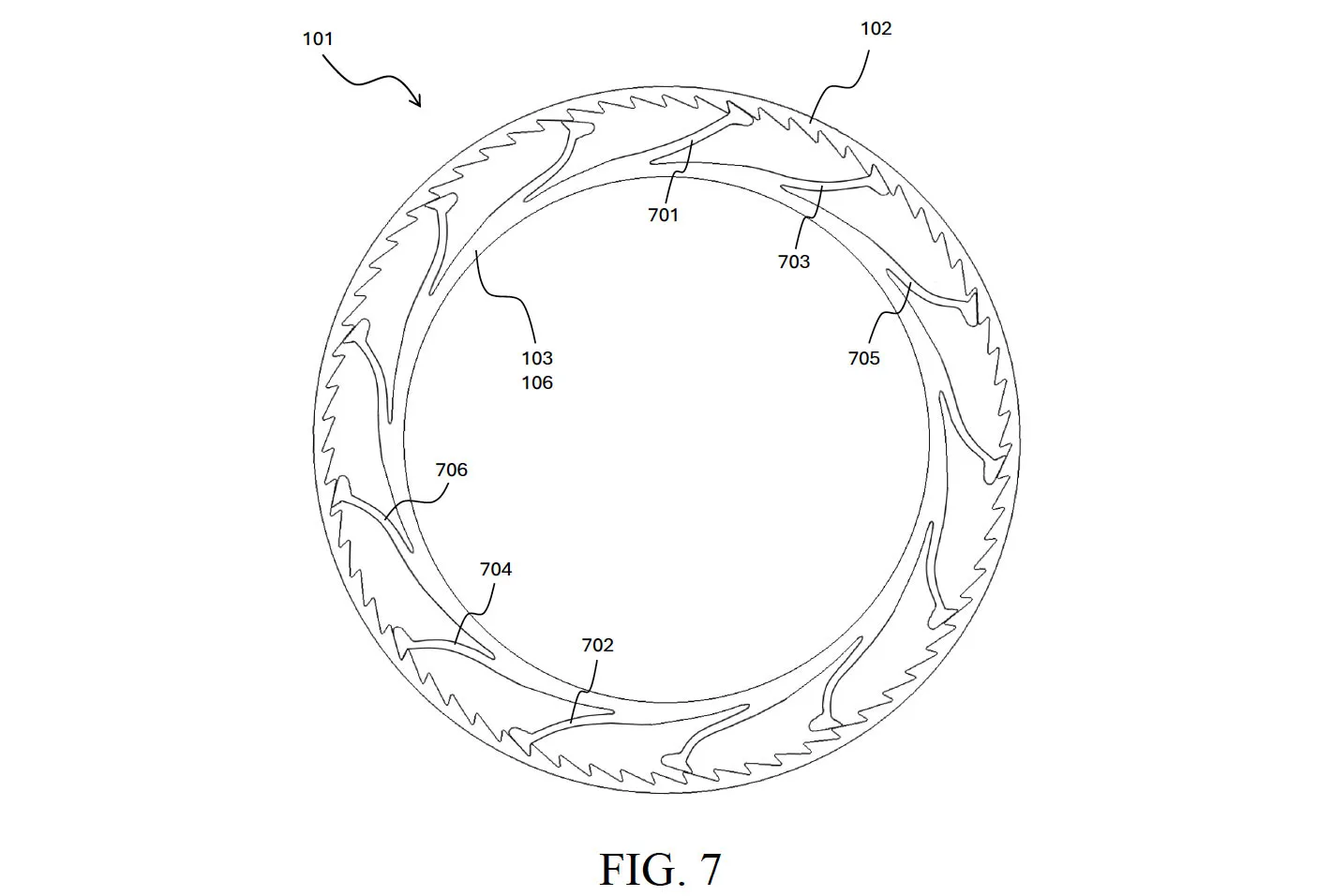
The essential premise makes use of built-in pawls (701) made on an internal ring, every basically it’s personal spring with a toothed hook on the finish to interact with the enamel (105) on the drive ring (102).
Nevertheless, it may additionally place the pawls on the outer ring and put the drive ring on the internal floor:
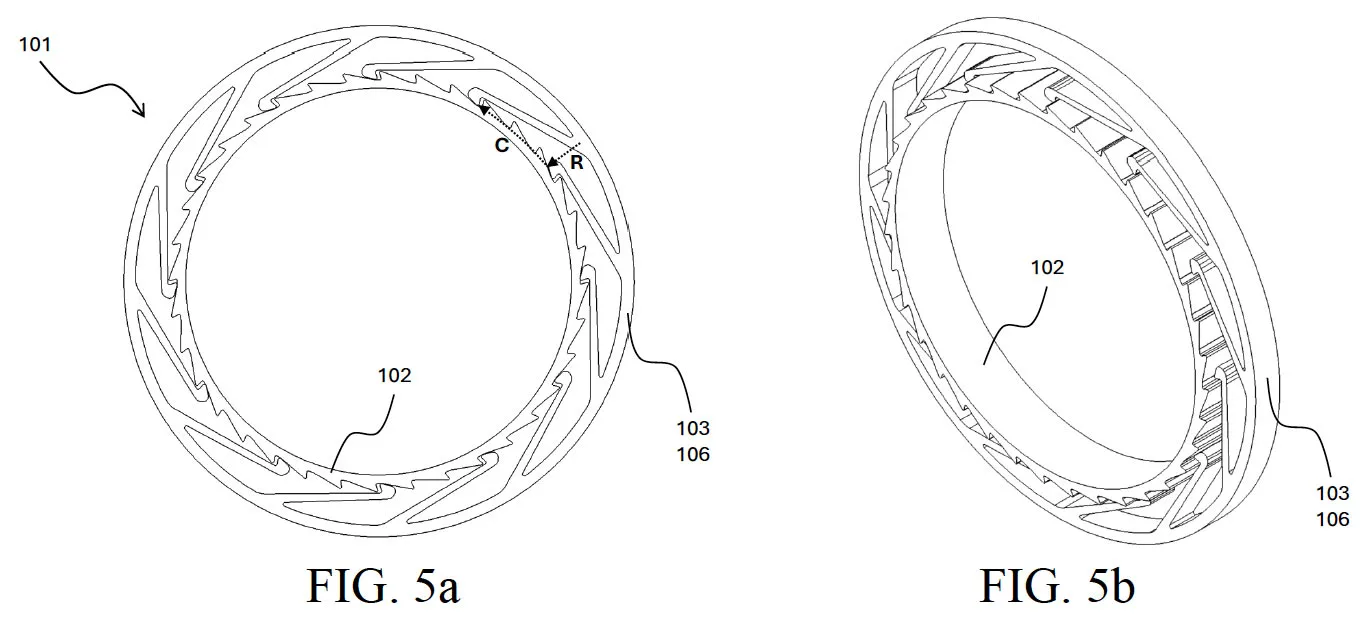

The pawls are staggered to interact at totally different factors within the hubs rotation, successfully creating extra factors of engagement with fewer-but-larger enamel. That is what number of present hubs work, often having two or three pawls engaged at any cut-off date. For hubs that don’t want ultra-quick engagement, the pawls might be wider (Fig. 5b).
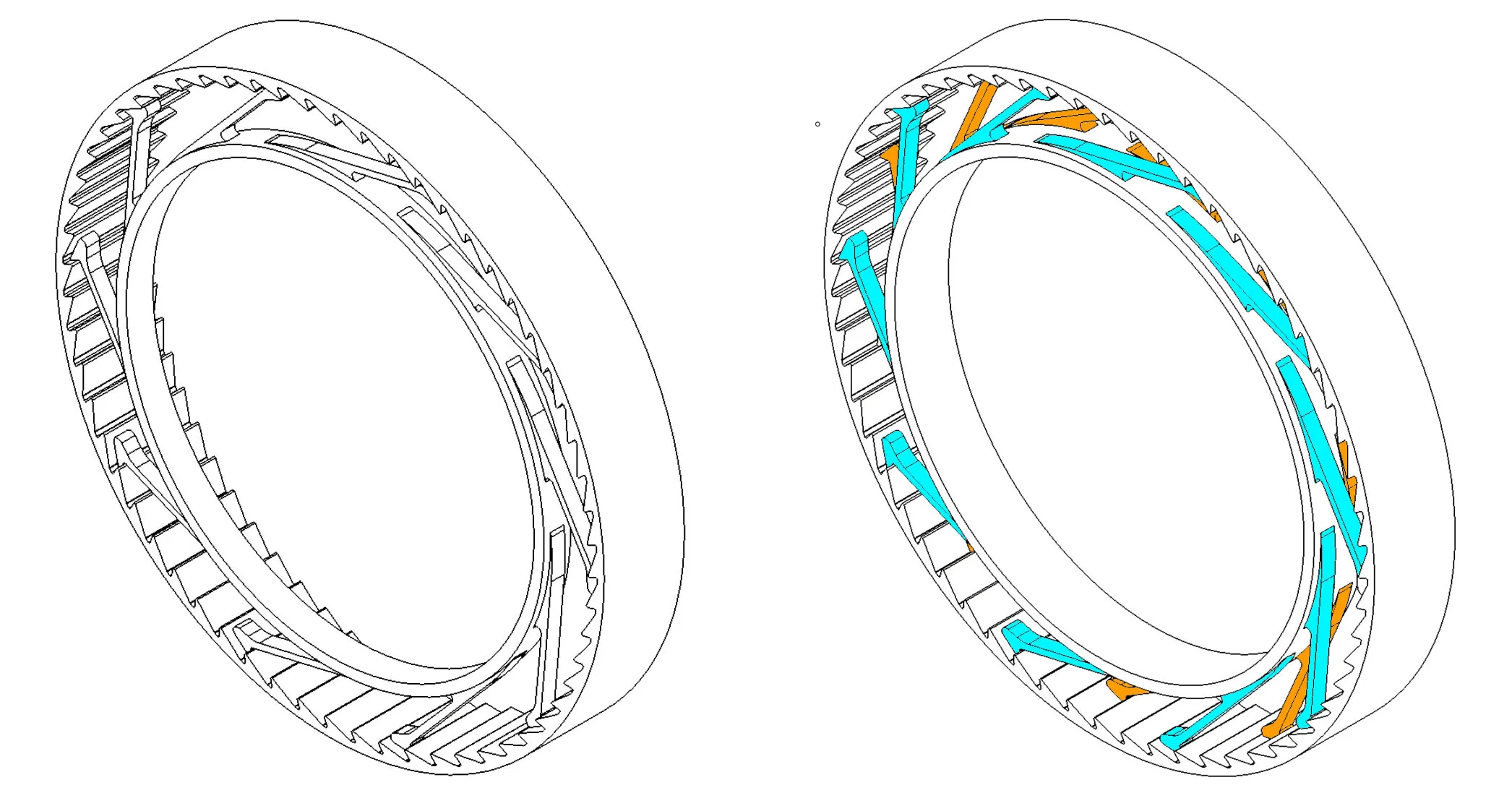

For faster engagement, a second set of pawls might be offset from the primary set (blue & orange picture on proper). Or…
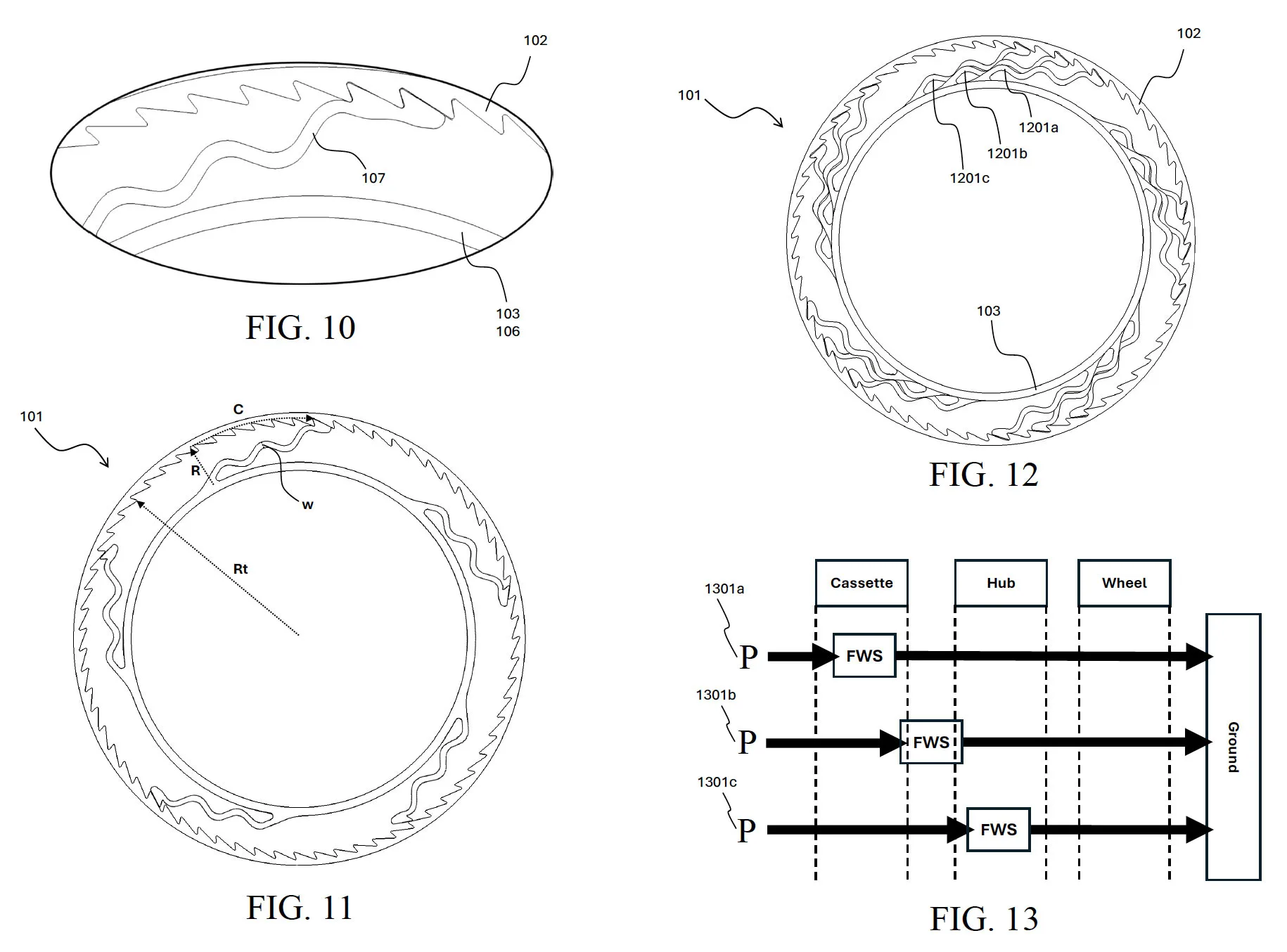

…they might even use three units for even quicker engagement (Fig.12). Alternatively, they might use two or three rings in sync to extend energy as a result of, admittedly, these pawls must be fairly skinny to suit into a conventional hub design. Assuming that’s what Lauf has in thoughts, let’s keep on that observe for a second.
Stretchy, Wavy Pawls
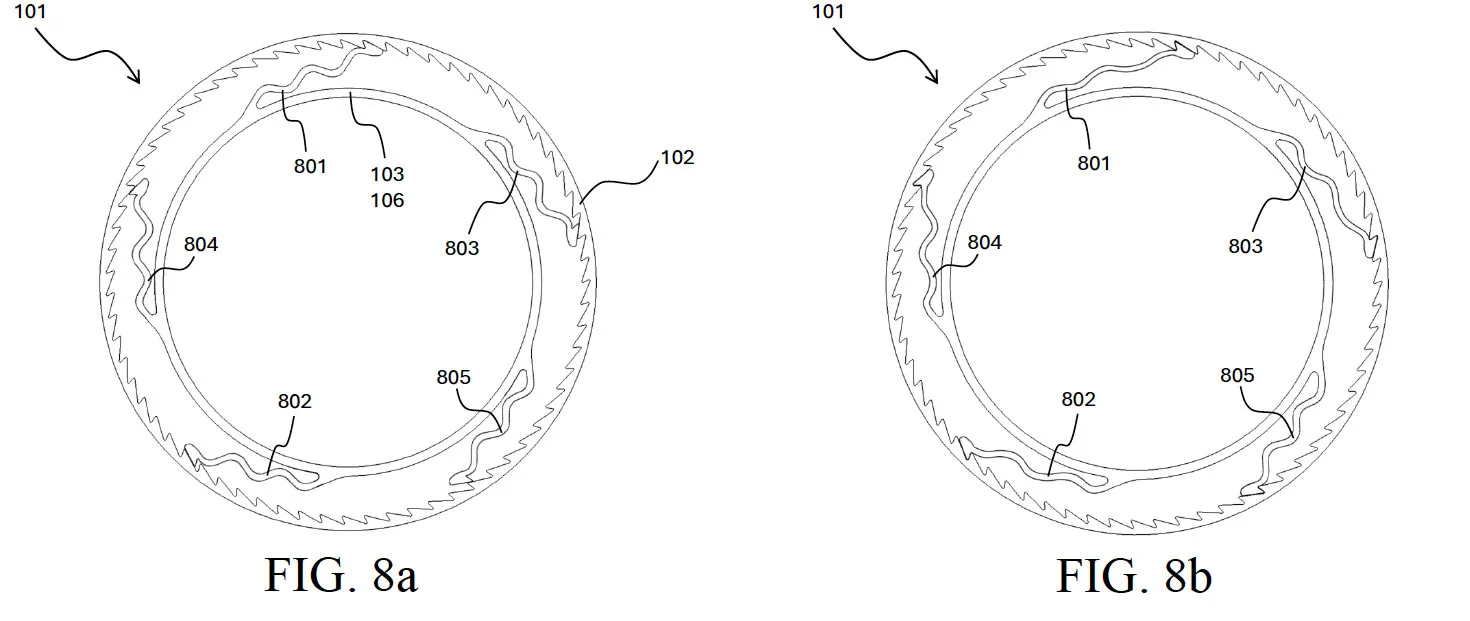

One other tactic for bettering complete engagement and energy is to make use of a wavy form, permitting every pawl to “stretch” barely, simply sufficient such that one set engages first, then they stretch till the second set engages, then these stretch till a 3rd set engages.
The profit to that is that you’ve got extra engagement all the best way across the hub, decreasing lateral stresses between the cassette and freehub and hub shell.
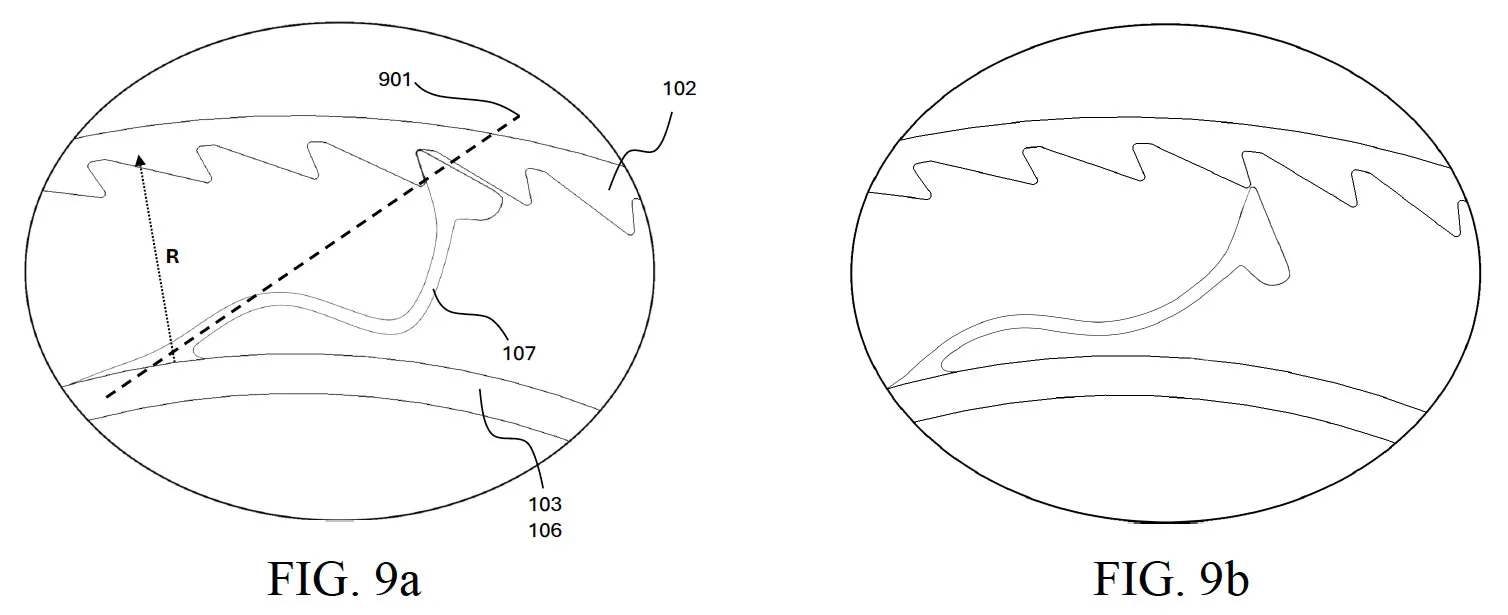

And, assuming you apply an excessive amount of torque, that wavy design permits the pawl to breakaway earlier than it snaps. No, that may not be nice for you, however it will theoretically protect your hub. Nevertheless, check out Fig. 13 above for a second, after which scroll down…
1000’s of Pawls, Full-Width Freehub Our bodies
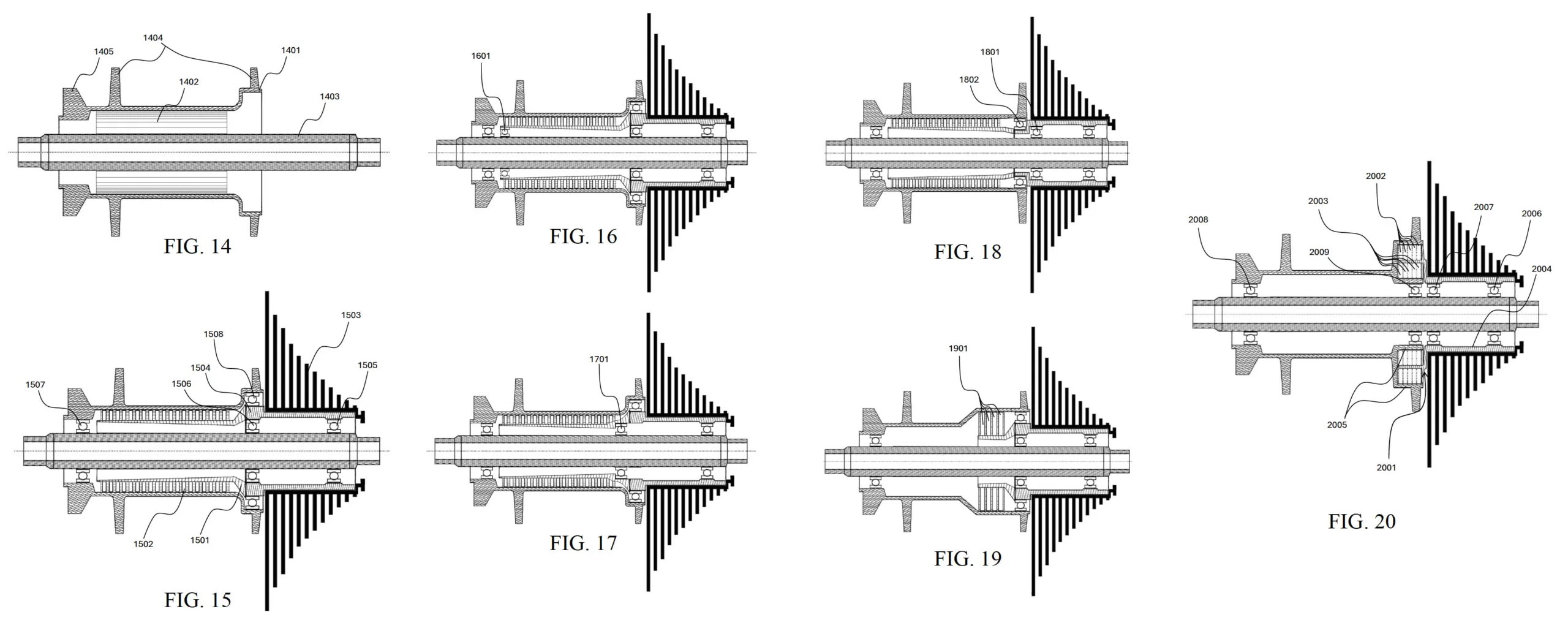

What for those who crammed the complete hub shell with rows of pawls, offering an enormous quantity of contact space, every barely staggered but additionally in a position to stretch to permit different rows of pawls to additionally have interaction?
Not solely would this create insanely quick engagement, however it will present insanely strong engagement, too. Lauf says this additionally gives a a lot better tolerance for pawls and ratchets being out of sync, which they are saying usually are attributable to real-world manufacturing limitations.
And, as a result of it permits for a full-width freehub physique that’s basically a second axle, it will make the complete meeting way more sturdy, too. Figures 15-20 present a wide range of design choices the place a number of rows of pawls slot in numerous locations and permit for a greater variety of freehub-to-hub shell interfaces.
Lauf additionally says the “stretch” of every pawl permits your energy to come back on step by step (nonetheless in a short time, thoughts you), which eliminates that loud KLUNK, notably on hubs with decrease engagement speeds. This may occasionally truly scale back put on and tear in your drivetrain, too.
Whereas Lauf is thought for his or her bikes and forks, they’re all the time tinkering. Their probably aim is to license this design somewhat than turn into a hub model, too, however we’ve been stunned by them earlier than, so who is aware of?


